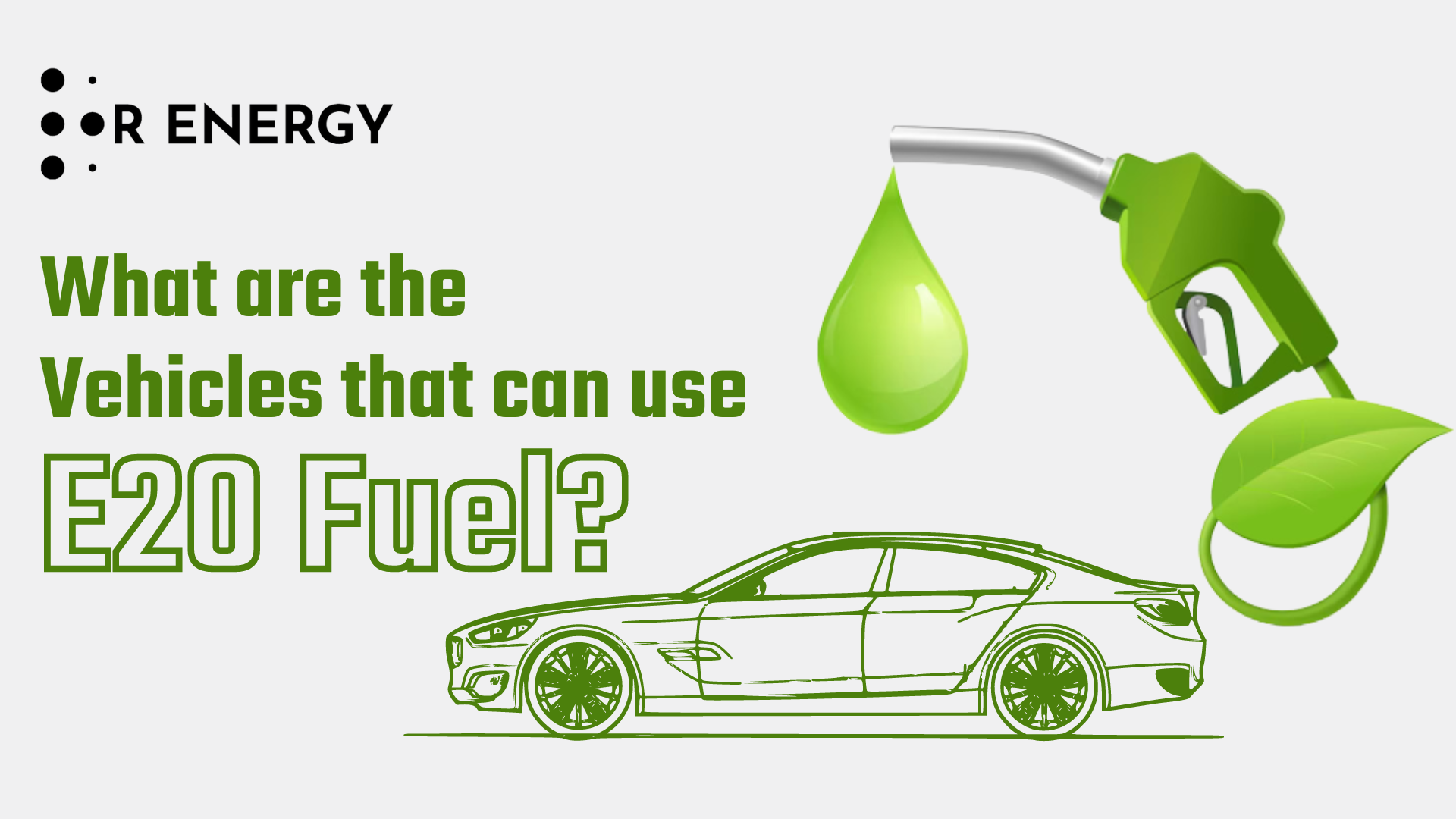India’s automobile sector is moving toward a greener, ethanol-based future with the rollout of E20 fuel, a blend of 20% ethanol and 80% petrol. This change is part of Prime Minister Narendra Modi’s vision for energy independence and sustainability.
The shift aims to reduce carbon emissions, lower fuel imports, and benefit India’s sugarcane and agricultural economy. But what does this mean for your vehicle?
In this article, we break down which vehicles can run on E20, how to identify E20-compliant models, and what impact it has on fuel efficiency, engine health, and the environment.
What is E20 Fuel and Why Does It Matter?
E20 fuel is a cleaner-burning blend designed to reduce reliance on pure petrol. By mixing 20% ethanol — a biofuel derived from sugarcane or corn — with petrol, India can:
- Reduce carbon emissions
- Support farmers with increased demand for ethanol crops
- Improve air quality in urban areas
- Reduce the crude oil import bill
The Government of India has set a target to roll out E20 fuel nationwide by 2025.
Benefits of E20 Fuel for Vehicles
Here’s why E20 fuel matters to car owners:
- Cleaner emissions: Less carbon monoxide and hydrocarbons
- Cost-effective: Ethanol is cheaper than petrol
- Eco-friendly: Uses renewable resources like sugarcane
- Better combustion: Enhances fuel efficiency in compatible vehicles
List of Top Vehicle Brands Offering E20-Compatible Models
Hyundai Creta, Venue, and Alcazar
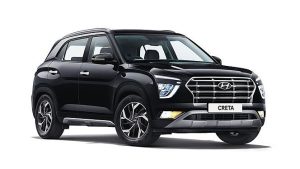 | 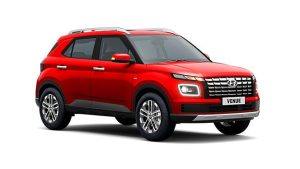 | 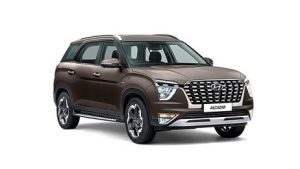 |
| Creta | Venue | Alcazar |
Hyundai Motor India is leading the way in terms of E20 fuel readiness. The Creta, Venue, and Alcazar SUVs from Hyundai Motor India can operate on E20 petrol as of the 2023 MY model year. The Creta, in particular, has two petrol engine options, a 1.5-litre MPi naturally-aspirated engine, and a 1.4-litre Kappa turbo GDi engine, both of which are compatible with E20 fuel.
Tata Motors
 | 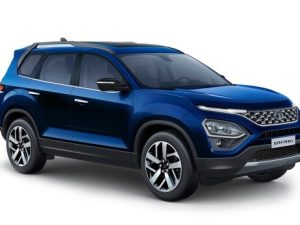 |
| Harrier | Safari |
Tata Motors has also entered the E20 fuel market with its new turbocharged petrol engines. The company debuted two new engines, a 1.2-litre and a 1.5-litre, at Auto Expo 2023. Tata has stated that its cars longer than 4 metres, presumably the Harrier and Safari SUVs, would soon be equipped with engines that are compatible with E20 fuel.
Maruti Suzuki
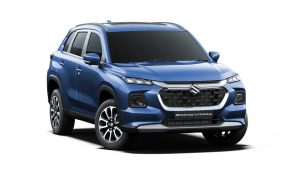 |
| Maruti Suzuki Grand Vitara |
Maruti Suzuki, one of the largest car manufacturers in India, has also announced plans to make its vehicles E20 fuel-compliant. The Maruti Suzuki Grand Vitara comes with two engine options, a 1.5-litre intelligent electric hybrid and a 1.5-litre naturally-aspirated petrol engine, both of which can use E20 fuel.
Skoda and Volkswagen
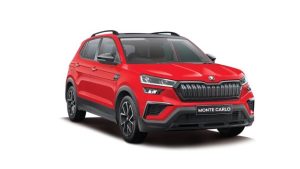 | 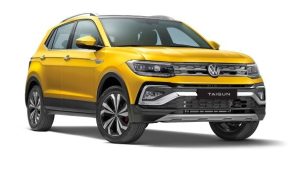 |
| Skoda Kushaq | Volkswagen Taigun |
The Skoda Kushaq and the Volkswagen Taigun are two mid-size SUVs that can use E20 fuel. Both of them have 1.0-litre turbo petrol and 1.5-litre turbo petrol engine options, which are E20 fuel-compliant.
MG Astor
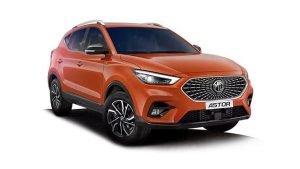 |
| MG Astor |
The MG Astor is another mid-size SUV that can use E20 fuel. It has two petrol engine choices, a 1.5-litre naturally-aspirated engine and a 1.3-litre turbo petrol engine. However, only the 1.5-litre petrol unit of the Astor is E20 fuel-ready.
How to Check if Your Vehicle is E20-Ready?
Not sure if your vehicle is compatible?
Check the fuel lid or owner’s manual.
Look for stickers or markings such as:
“E20 Compatible” or “Ethanol Fuel Compatible”
If in doubt, contact the manufacturer’s customer care or check the latest brochure of your car model.
Risks of Using E20 in Non-Compatible Vehicles
If your vehicle is not E20-ready, using E20 can:
- Damage fuel injectors and engine valves
- Corrode internal parts due to high ethanol content
- Reduce engine performance and mileage
Important: Always ensure your vehicle is certified for E20 before filling up!
Government’s Policy & Mandate on E20 Fuel in India (2025)
The Ministry of Road Transport and Highways (MoRTH) and the Ministry of Petroleum have directed:
- Oil companies to make E20 available across 100+ cities
- Automakers to manufacture only E20-compatible vehicles after April 2023
- Consumers to be educated through ethanol awareness programs
Where Can You Find E20 Fuel in 2025?
E20 petrol is now available in over 700 fuel stations across India, especially in:
- Metro cities: Delhi, Mumbai, Bengaluru, Chennai
- High sugar-producing states: Maharashtra, Uttar Pradesh, Karnataka
Is E20 Better Than Regular Petrol?
Yes, but only if your car supports it.
Compared to pure petrol, E20:
- Reduces tailpipe emissions
- Is slightly cheaper
- Has marginally lower energy content (about 6–7% less mileage)
But newer engines are designed to handle this efficiently.
Impact of E20 on India’s Flex Fuel Mission
India’s adoption of E20 is a step towards:
- Energy self-reliance (Atmanirbhar Bharat)
- Reducing crude oil imports
- Boosting farmers’ income
- Meeting net-zero targets by 2070
It complements India’s EV transition and green hydrogen missions.
Future of Ethanol-Based Fuels in India
Beyond E20, India plans to explore:
- E85 (85% ethanol blend) for flex-fuel vehicles
- Ethanol-based hybrid and plug-in systems
- Integration with green mobility initiatives
Conclusion
E20 fuel is no longer the future — it’s already here. With most carmakers aligning their vehicles to the new fuel blend, it’s essential for consumers to understand whether their car is E20-compatible. While it offers environmental and economic benefits, the key lies in responsible usage and awareness.
Read More:- What is E20 fuel: How it can help in PM Narendra Modi Flex fuel vision
Can I use E20 in any petrol vehicle?
No. Only vehicles marked "E20 compatible" should use it. Otherwise, engine damage may occur.
Which companies have E20-ready cars in India?
Maruti Suzuki, Honda, Toyota, Hyundai, Tata, and Kia have released E20-compatible models since 2023.


